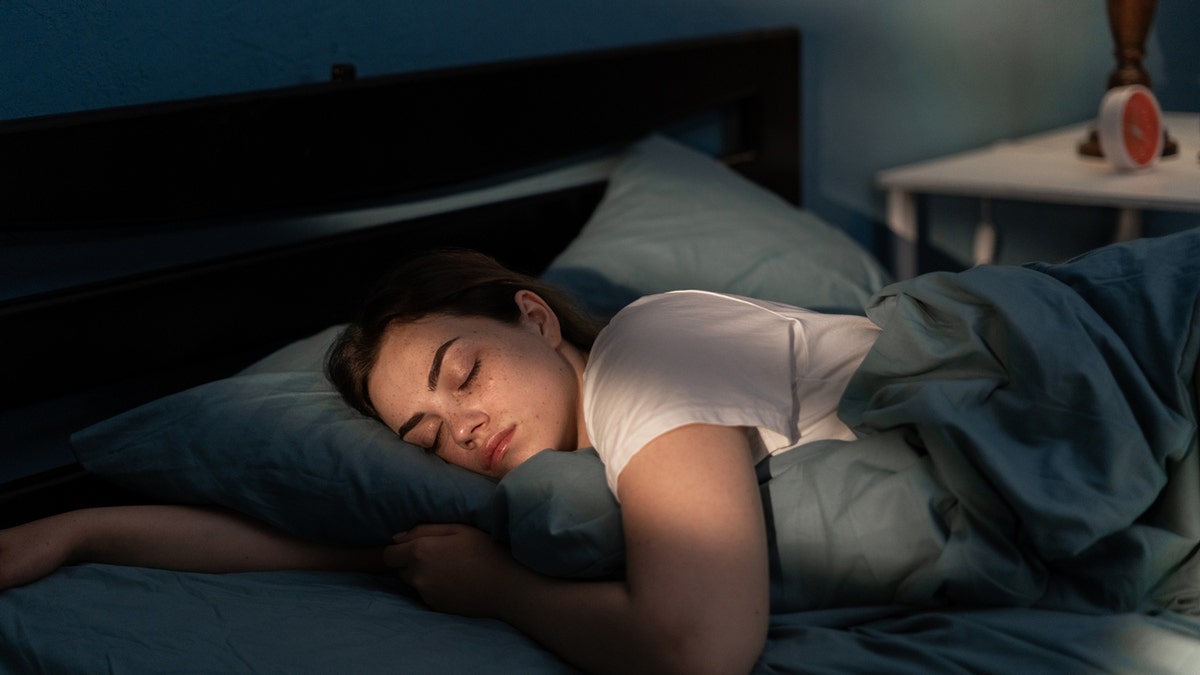Best and worst bedtimes for various generations

How much sleep is enough sleep?
It depends on multiple factors. One of the biggest is age.
In general, as you age, less sleep is required. While that may be true, the amount of sleep people need is an individualized experience, and not everyone requires the same amount of rest to properly function throughout the day.
LACK OF SLEEP COULD BE A FACTOR IN ‘SILENT EPIDEMIC,’ EXPERTS WARN
How much sleep a person needs may also not be consistent. For example, if you have a poor night’s sleep one night, you may require more hours of rest the next.
Pregnancy can also affect sleep. Pregnancy can affect quality sleep through physical discomfort, hormone shifts and anxiety, according to the Sleep Foundation.
While there are a number of factors that play into a good night’s sleep, here are some general guidelines for how much sleep different generations should get and tips for sleeping soundly.
- Newborns
- Toddlers
- Children
- Teenagers
- Adults
1. Newborns
Newborns require a lot of sleep. A newborn’s sleep schedule requires flexibility from parents because their hours of slumber are often far from consistent.
In general, newborns up to the age of 3 months need between 14 and 17 hours of sleep a day, according to the National Sleep Foundation. This includes naps throughout the day.
Infants from 4 to 11 months old still need between 12 and 15 hours every day.
LACK OF SLEEP POSES CONCERNING RISK FOR KIDS, STUDY FINDS: ‘CRUCIAL ROLE’
Newborns only sleep for an hour or two at a time, so establishing a schedule can be tricky.
Even though it will take time to establish a steady routine with your baby, it’s never too soon to start incorporating healthy habits.

For example, establishing a calming routine, putting babies to bed once they begin to get drowsy and giving them time to settle down all contribute to good sleep, according to Mayo Clinic.
Also, remember it’s never too early to begin reading to your baby — which can also become a bedtime routine staple.
2. Toddlers
Toddlers need between 11 and 14 hours of sleep every night, according to the National Sleep Foundation.
6 EXPERT TIPS FOR FIRST-TIME MOMS DURING THE INITIAL FEW MONTHS OF MOTHERHOOD THAT ARE CRITICAL TO HEALTH
At this age, you can really start to establish a bedtime routine with your child through actions like picking out pajamas, brushing teeth and reading a book together.
The time that toddlers go to bed varies for families, but anywhere from 6 p.m. to 8 p.m. is a good time to begin thinking about getting to bed, according to Parents.com.

3. Children
Children between 3 and 5 years old should get 10 to 13 hours of sleep per night, according to the National Sleep Foundation — while kids 6 to 13 years old should get nine to 11 hours of sleep every night.
Starting school will help children establish a daily routine.
When kids start school, it’s important to ensure they get to bed at an hour that allows them to get proper sleep before a busy day of learning.
CLICK HERE TO SIGN UP FOR OUR LIFESTYLE NEWSLETTER
For school-age children, a bedtime between 7:15 p.m. and 9 p.m. is generally a good idea, per Parents.com.
4. Teenagers
Teenagers don’t need as much sleep as children do.
For teenagers between the ages of 14 and 17, eight to 10 hours of sleep is ideal, according to the National Sleep Foundation.
Many teenagers are busy with extracurricular activities during the school year, which can affect their sleep.

They could be eating dinner later than normal or may spend time before bed scrolling through their phones, preventing them from getting good sleep.
Trying to limit screen time and going to bed around the same time on a nightly basis can help teenagers get optimal sleep.
5. Adults
Adults need the least sleep of any age group.
For more Health articles, visit www.foxnews.com/health
Adults between ages 18 and 64 should get between seven and nine hours of sleep each night, according to the National Sleep Foundation’s guidance, while those over 65 should get between seven and eight hours of sleep.
If you’re having trouble falling asleep, try to adjust your bedtime routine to include relaxing activities, like listening to calming music or reading a book.
Also, “white noise” could help you to fall asleep, according to the National Sleep Foundation.

You can get “white noise” through a fan or by using a sound machine or a noise app on your phone.
A cool room is another contributor to quality sleep, according to the National Sleep Foundation, with an ideal temperature of between 60 and 67 degrees Fahrenheit.
You can also limit caffeine intake and meals too close to bedtime to prepare your body for a restful sleep.
Read the full article here







